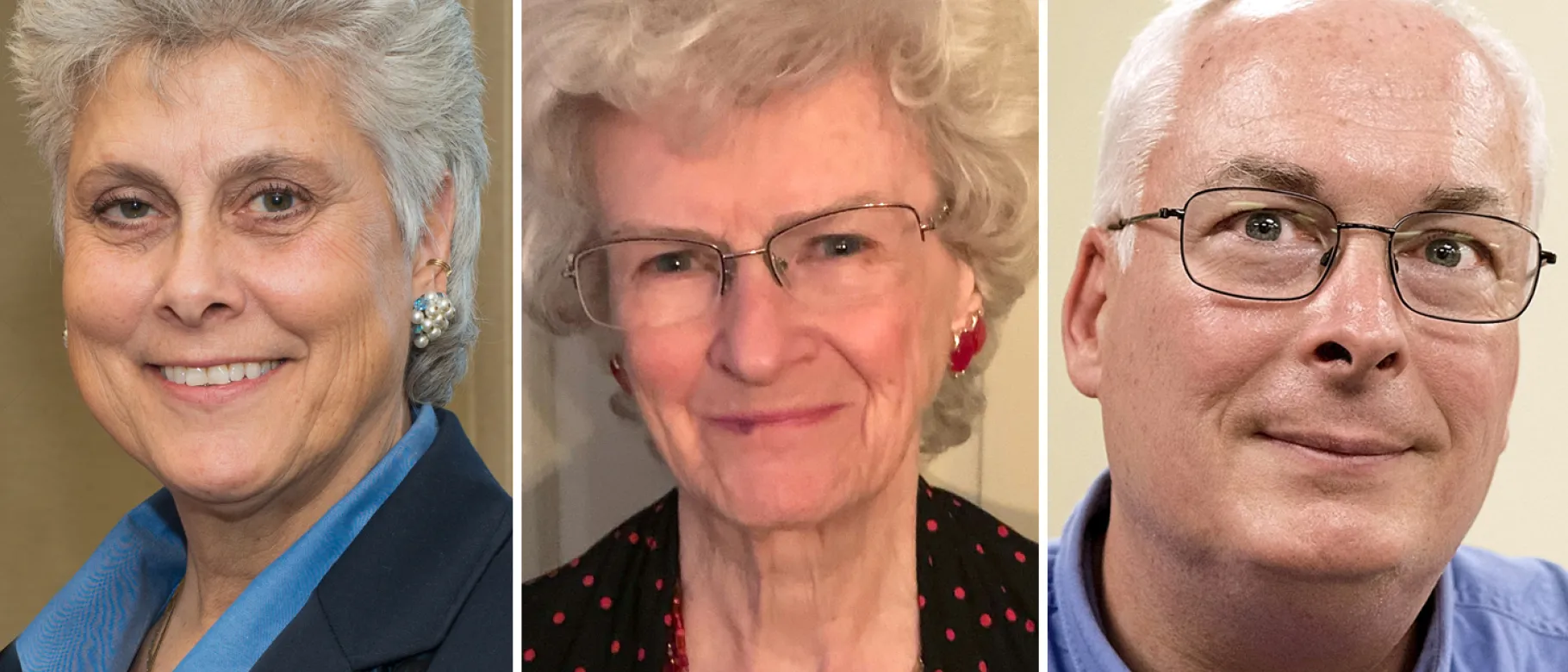UNE faculty interviewed about intergenerational learning and UNE’s designation as “age-friendly”

On April 17, The Evolllution, an online newspaper focusing on the non-traditional higher education industry, published an interview on intergenerational learning with UNE faculty members Tom Meuser, Ph.D., director of the Center of Excellence in Aging and Health (CEAH); Marilyn Gugliucci, M.A., Ph.D., professor and director of Geriatrics Education and Research in UNE’s College of Osteopathic Medicine (UNE COM); and Shirley Weaver, M.A. Ph.D., COM’s Geriatrics Education Mentor program consultant.
In the interview, Meuser defined intergenerational learning as “the open and free exchange of perspectives, values and ideas between individuals and groups with different life experiences,” giving the example of younger people learning from older people what it was like to live during a given historical event.
Weaver stressed that intergenerational learning is a two-way street. “The flip side … is that we, as older adults, get tuned into modern ways of looking at things, dressing and behaving,” she said. “We can be just as ageist as the young people can, and it’s really helpful to hear perspectives from both sides of the discussion.”
The group spoke at length about UNE’s status as the fifth university in the U.S. and the 11th in the world to be designated as an “age-friendly university.” Gugliucci explained that the designation denotes “the university … [as] duty-bound to [supporting] the contributions of older adults, to bringing them into our classrooms, embracing opportunities to support aging in a positive and healthy way, and having older adults participate in our research.”
As examples of UNE’s age-friendliness, Meuser mentioned innovative work that Gugliucci’s team performs in nursing homes and hospices and in training medical students. Gugliucci described the Geriatric Education Mentors (GEM) program, specifically -- noting that the program pairs approximately 165 older adults with UNE COM’s medical students for intergenerational learning experiences.
Meuser also discussed the CEAH’s Legacy Scholars Program, a program that invites adults aged 55 and older to join with UNE students, faculty, and staff to participate in shared scholarship and service in support of healthy, meaning-filled aging. Gugliucci shared her observation that it can be difficult to provide these experiences equitably to the older adult population, given how diverse its members’ learning needs are. “What’s challenging is recognizing the range of educational needs that older adults can have,” she stated. “Some left school early, never finishing elementary or high school. Some have PhDs in their life … Intergenerational learning is very complex, not only because of a range of personalities but because of a range of experiences across the years.”
When asked to identify the desired outcome of learning environments that bring together older adults with younger adults, Meuser prefaced his answer by saying that “intergenerational learning and exchange should not be forced. The best intergenerational learning happens naturally and incidentally in personal interactions between individuals of different age groups and perspectives,” he said.
He added, “The primary outcome that I care about is that everyone is harnessing special and particular knowledge that each group may have. If we can say somebody has walked out of an experience with a new perspective, that’s what matters.”